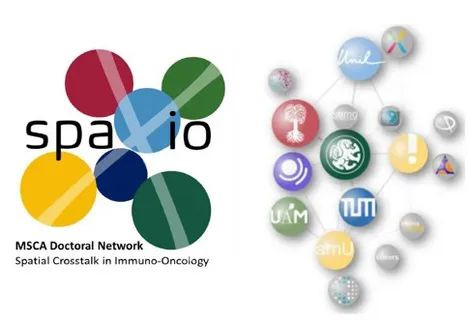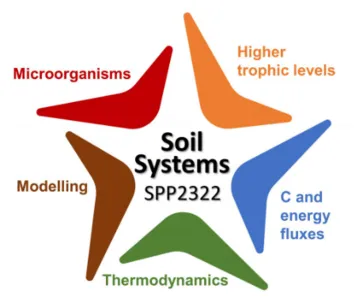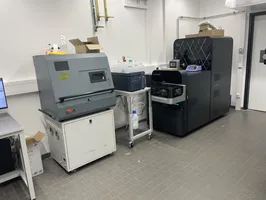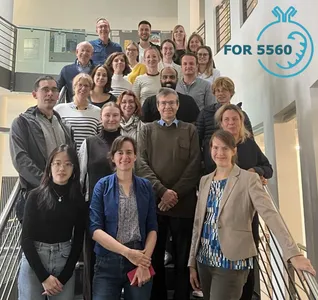SpaXio | MSCA Doctoral Network

spaXio is an innovative European Marie Skłodowska-Curie Actions (MSCA) doctoral training network focused on understanding how cancer spreads to distant organs — a process known as metastasis. The project combines cutting-edge methods like spatial multi-omics, 3D tumoroid models, and AI-powered data analysis to uncover how metastatic niches form and how they might be targeted therapeutically. 13 doctoral candidates will receive interdisciplinary hands-on training in academic and industry settings, preparing them to become leaders in cancer research and pioneers in the rapidly growing field of spatial biology. The core academic partners include Paris Lodron University Salzburg (coordinator), Aix-Marseille University (AMU), INSERM (Institut national de la santé et de la recherche médicale), University of Tübingen, Instituto de Investigaciones Biomédicas de Madrid (CSIC), Autonomous University of Madrid (UAM), Technical University of Munich (TUM), and the University of Lausanne (UNIL). spaXio is supported by associated partners including Sumo Technologies, 10x Genomics, Akoya Biosciences, Okomera, Phasics, Miltenyi Biotec, Molecular Devices, and Waters GmbH, who provide advanced technologies and expertise.
As part of this project we will generate high-resolution maps of cellular interactions and metabolic pathways in the metastatic niches affected by breast and colorectal cancer using spatial metabolomics (using DESI and LD-REIMS), chromatography-based metabolomics and single-cell multi-omics in a project involving the University of Salzburg. If you plan to apply our project is project 04.
Hiring is now open for fully funded 4-year PhD projects. Follow this link to the application form. We cannot accept any applications that are not submitted via this form. Deaedline: 08.11.2025
Start: 01.10.2025, Duration 60mo - PhD positions to start March to June 2026
Programm coordinators: University of Salzburg (Dirk Schmidt-Arras, Peter Krenn, Jutta Horejs-Hoeck)
SPP 2494 | Productive Biofilms

This project is part of the DFG-funded special research focus on productive biofilm species (link to Homepage) which just started it's first funding round. We are part in a project with Co-PI Prof. Dr. Elke Dittmann from the University of Potsdam where she leads the Department of Microbiology. Here we aim to combine her expertise in cyanobacteria with our expertise in spatial metabolomics to optimise cyanobacterial biofilms under different conditions.
Filamentous cyanobacteria of the genus Nostoc have many properties that are particularly favorable for development as productive biofilm systems: i) They have very good passive immobilization capabilities and have been shown to form high-density biofilms. ii) They have the ability to fix nitrogen. iii) Both the multicellularity and the proven phenotypic plasticity can be used for an efficient spatial division of labor. iv) Both Nostoc monocultures and mixed cultures can be efficiently genetically manipulated and have already been used for high-titer production of the model compound Pyreudione A from P. fluorescence. We aim to study mono- and mixed-species Nostoc biofilms for high-titer production of bulk and fine chemicals. Our contribution will be to characterise (a)biotic factors influencing spatial heterogeneity in Nostoc biofilms as well as understand the mechanisms of phenotypic heterogeneity controlling product formation in order to ultimately decouple growth and production. Barbara Matic is currently performing her MSc Thesis on this project and will continue on this project as a PhD student.
Barbara made a fabulous 2 minute video explaining the core idea of the project. You can find it here.
Start: 01.08.2025, Duration: 36 months
Co-PI: Prof. Dr. Elke Dittmann
SPP2322-2 | SoilEnergySpots

This project is part of the DFG funded Special research focus area SPP 2322 on Soil Systems aiming to study the systems ecology of soil (coordination: Sören Thiele-Bruhn, Trier university). We have joined this SPP in the second funding phase in a project together with Dr. Steffen Schweizer und Prof. Dr. Mirjana Minceva, both from the TUM School of Life Sciences.
Whether or not soil microbes can access organic carbon (OC) is critical for OC decomposition and serves as an unresolved boundary condition for energy dynamics in soil systems. The heterogeneous arrangement of OC and mineral particles in the soil structure provides a diverse OC accessibility , modulated by adsorption and aggregation. A cross disciplinary combination of novel experimental approaches, spatial biogeochemical mapping, and a thermodynamic framework will enable novel insights. Our overarching goal is to improve the mechanistic understanding of how distinct microscale spots regulate energy and OC dynamics in soils, depending on OC accessibility. In our subproject, Dr. Lieby Zborovsky will specifically focus on the spatial mapping of necromass and low molecular weight compound hotspots and link their spatial distribution with macroscale heat flow.
Start: 01.05.2025, Duration: 36 months
Co-PIs: Dr. Steffen Schweizer und Prof. Dr. Mirjana Minceva
ERC Starting Grant | CITE
Small molecule anti-cancer therapies generally have a well understood mechanism of action. Still, they are frequently plagued by poor efficacy and high rates of treatment resistance, especially in the context of pancreatic cancer. One potentially targetable route of therapy resistance is intratumoral drug inactivation through members of the tumour microenvironment (TME) such as the tumour-associated microbiome.
With the CITE project, I aim to develop novel analytical technologies that enable us to study drug-TME interaction in situ and in isolation from systemic drug metabolism and provide a novel platform for selectively studying the contribution of the TME to drug resistance mechanisms. We will develop a spatial pharmacometabolomics approach using Laser Desorption coupled to Rapid Evaporative Ionisation Mass Spectrometry (LD-REIMS). First, a novel and sensitive source setup will be developed, followed by instrumental setups for imaging applications and high throughput acquisition of cell lines and bacteria. We will further develop organotypic culture (3D-OTC, slice culture) models of pancreatic cancer to study isolated, intratumoral drug metabolism in a controlled environment while still using relevant clinical material to assess intratumoral metabolism of 4 FDA approved small molecule systemic and targeted chemotherapies.
This project was awarded in the ERC Starting grant round of 2024. In total, 4 researchers will be hired on this project: 3 PhD students and one postdoctoral researcher wth focus on bioinformatics. The first two students have started in 2025, Patricia Taborda and Jiahao Li. While Patricia is working on generating a spectral database of cellular profiles for mapping cells in the tissue microenvironment, Jiahao is leading the instrumentation development for LD-REIMS-based high-throughput cellular profiling and high-resolution imaging. This work will be performed on our Waters Select MRT platform which we were able to purchase using this funding.
Start: 01.12.2024, Duration: 60 months
FOR5560 - P06 (DFG-funded)
This project is part of the DFG-funded Research Unit FOR5560 on B cell signalling and metabolism (speaker: Prof. Dr. Julia Jellusova, TUM). We combine expertise in immunology with analytical chemistry with the aim to develop novel methods to analyse how the CBM complex controls metabolic reprogramming in pathological B cells, integrating standard immunological techniques with mass spectrometry-based metabolomics and imaging mass spectrometry.
CARD11 gain-of-function mutations are found in diffuse large B cell lymphoma (DLBCL) and a deeper understanding of how metabolism is controlled in these cells could help to identify new vulnerabilities amenable for medical intervention. We seek to not only study intracellular changes in metabolite levels but to extend our studies to the microenvironment. How activated B cells alter their microenvironment is currently poorly understood but could have broad implications for the function of other tissue resident cells as well. We seek to test the hypothesis that these highly proliferating B cells impact the metabolic composition of the surrounding tissue by consuming nutrients as well as through the secretion of metabolic waste products through multimodal imaging. Wei Chen is supporting this project through spatial metabolomics measurements, imaging mass cytometry as well as cell-based metabolomics screening experiments.
Start: 01.10.2023, Duration: 48 months
Co-PI: Prof. Dr. Jürgen Ruland


